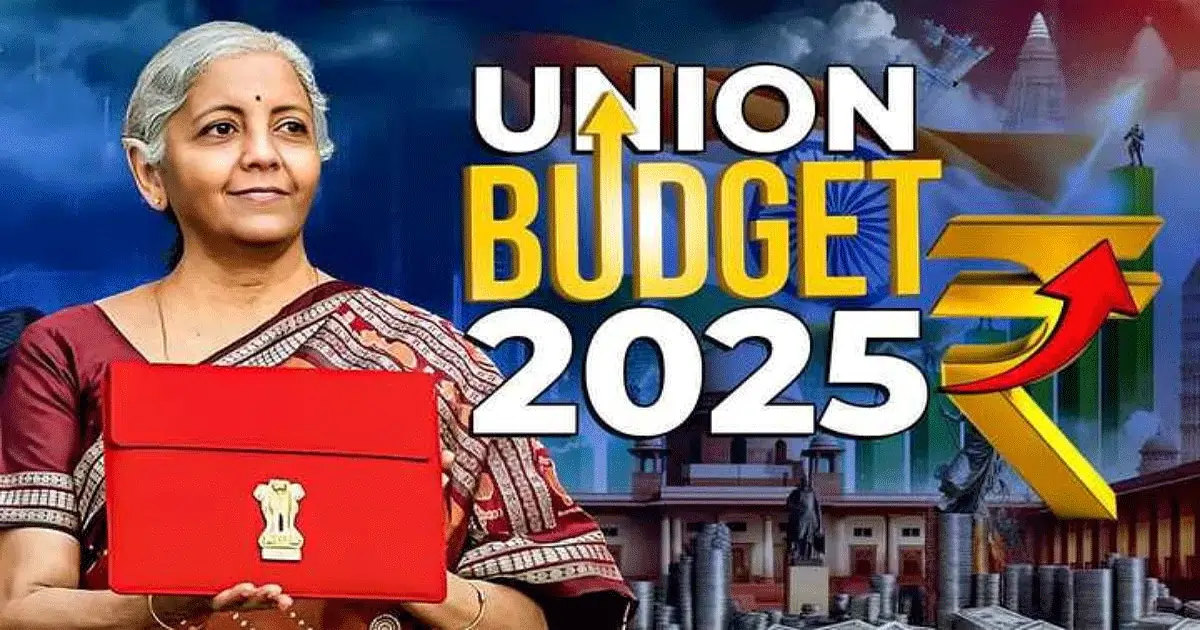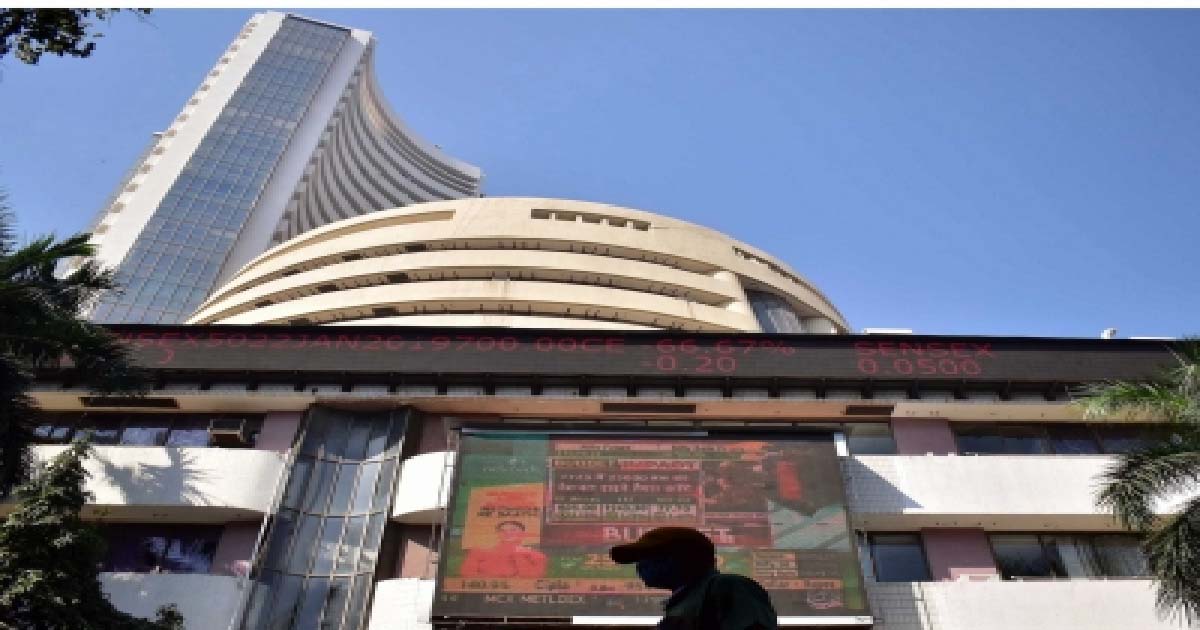Business
Budget Session To Feature Key Economic & Policy Bills Shaping India’s Fiscal Landscape

New Delhi: Following the presentation of the Economic Survey on January 31 and the Union Budget on February 1, the Budget Session 2025 is poised to address a range of significant legislative matters.
This year’s session will not only include the introduction and passage of key bills but also crucial financial discussions that will shape India’s fiscal landscape.
Series Of Important Bills Likely To Be Taken Up
A series of important bills are likely to be taken up during the session. These include the Banking Laws (Amendment) Bill, 2024, aimed at strengthening banking regulations and oversight, and the Railways (Amendment) Bill, 2024, which focuses on enhancing the operational efficiency of the Indian Railways.
Another notable proposal is the Disaster Management (Amendment) Bill, 2024, which seeks to improve disaster response mechanisms across the country.
Additionally, the Oilfields (Regulation and Development) Amendment Bill, 2024 will propose updates to the laws surrounding oil exploration and extraction, while the Boilers Bill, 2024 is set to introduce new safety and operational standards for boilers in industrial applications.
Among other bills likely to be introduced is the Readjustment of Representation of Scheduled Tribes in Assembly Constituencies of the State of Goa Bill, 2024, which will address the reallocation of assembly constituencies to better represent scheduled tribes in the state.
The Waqf (Amendment) Bill, 2024 and the Mussalman Waqf (Repeal) Bill, 2024 are also expected to bring reforms to the management of religious endowments.
Maritime Laws To See Several Updates
Maritime laws will see several updates, with the Bills of Lading Bill, 2024, Carriage of Goods by Sea Bill, 2024, Coastal Shipping Bill, 2024, and the Merchant Shipping Bill, 2024 all set to modernize shipping regulations.
Above all, the Finance Bill, 2025 will be central to implementing the budgetary proposals and tax reforms which will be announced by the finance minister on February 1.
Other key bills include the Protection of Interests in Aircraft Objects Bill, 2025, which will safeguard financial interests related to aviation, and the Immigration and Foreigners Bill, 2025, which will bring changes to immigration and foreigner regulations in India.
In terms of financial business, the session will see the discussion and voting on Demands for Grants for 2025-26, followed by the introduction, consideration, and passage of the related Appropriation Bill.
The Discussion and Voting on Demands for Grants for 2025-26 is an essential aspect of parliamentary procedures, allowing for the approval of government spending for the upcoming fiscal year while promoting accountability and transparency.
Demands for Grants are essentially requests made by the government to Parliament, specifying the amount of money it needs to meet its expenses for a given year.
These expenses cover a wide range of areas, such as infrastructure, healthcare, defence, education, welfare programs, and more. Each ministry or department submits its own Demands for Grants, detailing the specific amounts needed to fund its activities and programs.
Additionally, the Second and Final Batch of Supplementary Demands for Grants for 2024-25 will be reviewed, along with the introduction and passage of the relevant Appropriation Bill.
What Are 2nd & Final Batch Of Supplementary Demands For Grants For 2024-25
The Second and Final Batch of Supplementary Demands for Grants for 2024-25 refers to additional funds that the government seeks to allocate after the presentation of the annual budget for the fiscal year. These supplementary demands arise when there are changes in the government’s spending needs, which were not anticipated during the initial budget preparation.
The session will also address the Demands for Excess Grants for 2021-22, which will require discussion, voting, and the introduction of a related Appropriation Bill.
Demands for Excess Grants for 2021-22 refer to additional funds that the government seeks to appropriate for the financial year 2021-22 when the expenditure incurred by various ministries or departments exceeded the amount originally approved by Parliament in the budget for that fiscal year.
Business
Indian Hotels clocks 48.6 pc drop in Q2 net profit to Rs 285 crore

Mumbai, Nov 4: Tata Group’s hospitality arm, Indian Hotels Company Limited (IHCL), on Tuesday reported a 48.6 per cent year-on-year (YoY) drop in net profit to Rs 285 crore for the quarter ended September 2025 (Q2 FY26).
The company had posted a profit of Rs 555 crore in the same quarter last financial year (Q2 FY25), according to its stock exchange filing.
Despite the fall in profit, IHCL’s revenue from operations rose 11.8 per cent to Rs 2,040.8 crore, compared with Rs 1,826 crore in the corresponding period of the previous financial year.
The company’s EBITDA (earnings before interest, tax, depreciation, and amortisation) also showed improvement, rising 14.2 per cent year-on-year (YoY) to Rs 572 crore from Rs 501 crore a year ago.
The EBITDA margin improved slightly to 28 per cent, compared with 27.4 per cent in the same quarter last financial year.
On the market front, IHCL shares ended at Rs 743.75 on the BSE, down Rs 3.30 or 0.44 per cent on Tuesday.
Over the last five days, the stock gained Rs 2.35 or 0.32 per cent, while in the past month, it rose Rs 20.65 or 2.85 per cent.
However, over a longer period, the stock has faced some pressure. In the last six months, IHCL shares fell Rs 57.60 or 7.18 per cent, and on a year-to-date (YTD) basis, they are down Rs 129.40 or 14.81 per cent.
Still, over the past one year, the stock has gained Rs 77.65 or 11.65 per cent.
The Indian Hotels Company Limited (IHCL) is South Asia’s biggest hospitality group. It was founded in 1903 by Jamsetji Tata, who started it with the opening of The Taj Mahal Palace in Mumbai.
The company is best known for its Taj hotels and its unique culture called “Tajness,” which combines Indian tradition with modern hospitality.
Today, IHCL runs more than 550 hotels across four continents and focuses on being both innovative and sustainable.
Business
Centre to launch third round of PLI scheme for specialty steel

New Delhi, Nov 4: The government was set to launch the third round of the production-linked incentive (PLI) scheme for Specialty Steel on Tuesday, which is one of the key initiatives under the Atmanirbhar Bharat vision.
The PLI 1.2 launch will be presided over by Union Minister H.D. Kumaraswamy, in the presence of senior officials, and other stakeholders from the sector, according to Ministry of Steel.
The ministry said that the PLI Scheme for Specialty Steel, approved by the Union Cabinet in July 2021 with an overall outlay of Rs 6,322 crore, aims to transform India into a global hub for production of high-value and advanced steel grades.
The PLI scheme has attracted a committed investment of Rs 43,874 crore so far, with Rs 22,973 crore already invested and over 13,000 jobs created under the first two rounds.
The scheme covers 22 product sub-categories including super alloys, CRGO, alloy forgings, stainless steel (long and flat), titanium alloys, and coated steels.
Incentive rates range from 4 per cent to 15 per cent, applicable for five years starting FY 2025–26, with disbursal beginning in FY 2026–27.
The base year for pricing has also been updated to FY 2024–25 to better reflect current trends.
The PLI scheme incentivises incremental production and investment in identified product categories, thereby enhancing value addition within the country and reducing import dependence in critical sectors such as defence, power, aerospace and infrastructure.
Meanwhile, the country aims to achieve 300 million tonnes of crude steel production capacity by 2030. Notably, India’s domestic steel demand is growing at an impressive 11-13 per cent, fuelled by large-scale infrastructure projects, while global demand faces a slowdown, according to Steel Ministry.
Steel production surged by a robust 14.1 per cent in September compared to the same month of the previous year on the back of increased demand from big-ticket infrastructure projects being carried out by the government.
Business
Indian stock markets end higher after two days of losses

Mumbai, Nov 3: Indian equity markets ended a volatile session on a positive note on Monday, snapping a two-day losing streak.
Gains in real estate and state-owned bank stocks helped lift the indices despite early weakness.
After opening lower, the Sensex recovered to touch an intra-day high of 84,127 before closing 39.78 points, or 0.05 per cent, higher at 83,978.49.
The Nifty also gained 41.25 points, or 0.16 per cent, to end at 25,763.35.
“The Nifty oscillated between 25,700 and 25,800 through the day, showing resilience after briefly dipping below the October 24 low of 25,718,” analysts said.
“The zone between 25,660–25,700 once again acted as a strong demand pocket, helping the index recover intraday losses and maintain a constructive tone ahead of key global data releases,” they added.
Among the Sensex stocks, Maruti Suzuki fell over 3 per cent and was among the top losers along with Titan Company, BEL, TCS, ITC, NTPC, Bajaj Finserv, Tata Steel and tech Mahindra.
On the other hand, Mahindra & Mahindra, State Bank of India, Tata Motors Passenger Vehicles, and HCL Tech were the major gainers.
In the broader markets, the Nifty MidCap index rose 0.77 per cent, while the Nifty SmallCap index advanced 0.72 per cent, showing strength beyond the frontline stocks.
Among sectoral indices, PSU bank shares led the rally, with the Nifty PSU Bank index climbing 1.92 per cent.
Bank of Baroda surged 5 per cent, while Canara Bank, Bank of Maharashtra, Bank of India, and Indian Bank also gained.
The Nifty Metal and Realty indices also added up to 2 per cent each.
Meanwhile, the FMCG, Private Bank, and IT indices slipped up to 0.4 per cent, capping the market’s overall gains.
Analysts said that despite mixed global cues and cautious investor sentiment, buying in select sectors helped the markets end the day in the green.
“The domestic market ended on a marginal positive note as profit booking was visible at the higher levels due to the absence of fresh domestic triggers,” market watchers said.
“While the broader market outperformed since the quarterly earnings are steering investors’ preference to take a short- to medium-term view,” they mentioned.
-

 Crime3 years ago
Crime3 years agoClass 10 student jumps to death in Jaipur
-

 Maharashtra1 year ago
Maharashtra1 year agoMumbai Local Train Update: Central Railway’s New Timetable Comes Into Effect; Check Full List Of Revised Timings & Stations
-

 Maharashtra1 year ago
Maharashtra1 year agoMumbai To Go Toll-Free Tonight! Maharashtra Govt Announces Complete Toll Waiver For Light Motor Vehicles At All 5 Entry Points Of City
-

 Maharashtra1 year ago
Maharashtra1 year agoFalse photo of Imtiaz Jaleel’s rally, exposing the fooling conspiracy
-

 National News1 year ago
National News1 year agoMinistry of Railways rolls out Special Drive 4.0 with focus on digitisation, cleanliness, inclusiveness and grievance redressal
-

 Maharashtra12 months ago
Maharashtra12 months agoMaharashtra Elections 2024: Mumbai Metro & BEST Services Extended Till Midnight On Voting Day
-

 National News1 year ago
National News1 year agoJ&K: 4 Jawans Killed, 28 Injured After Bus Carrying BSF Personnel For Poll Duty Falls Into Gorge In Budgam; Terrifying Visuals Surface
-

 Crime1 year ago
Crime1 year agoBaba Siddique Murder: Mumbai Police Unable To Get Lawrence Bishnoi Custody Due To Home Ministry Order, Says Report












